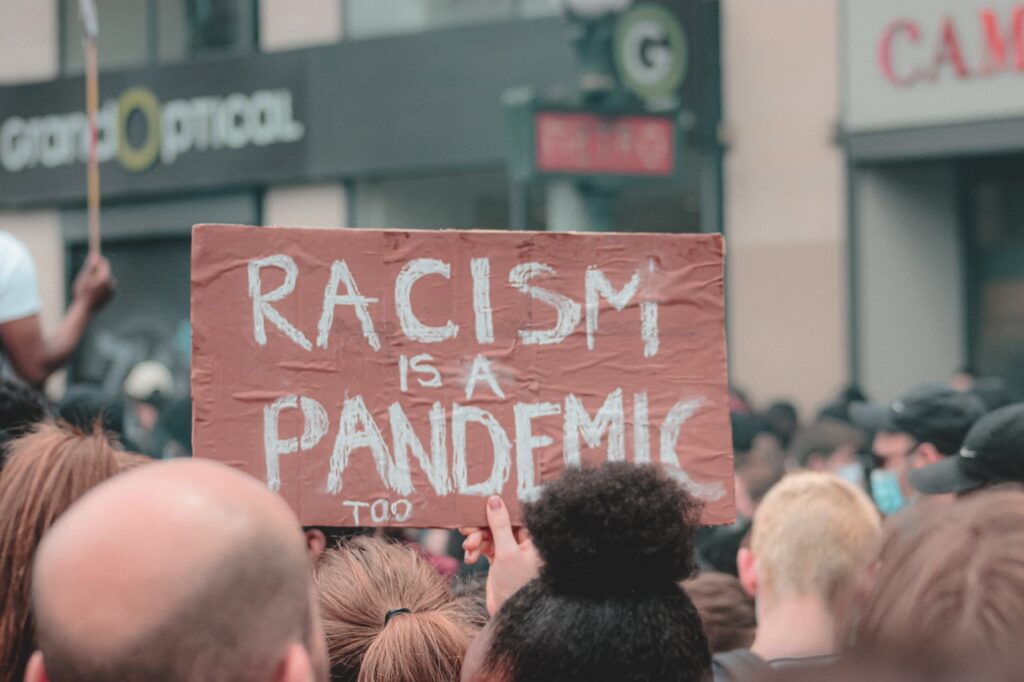Systemic Racism Affects Black People
Systemic racism is predominant in the international human rights movement.
The worldwide protest “Black Live Matter” and the widely spread COVID-19 pandemic lit by the violent murder of an Afro-American, George Floyd.
The formulation of systemic racism disadvantage different racial groups in significant ways.
The implicit bias is also one of the major reasons why the unemployment rate is twice the rate of White unemployment, even among college graduates. Evidence of systemic racism is seen in every area of life including the disparities in family wealth, incarceration rates, analytical representation, and education are all examples of systemic racism.
People with low income, African Americans are less likely to have adequate health assistance. The frontline workers, usually the Blacks, are more prone to health risks because of their occupation in this time of the globally spread pandemic.
Racial Discrimination
Disparities on racial grounds consigned people of color to more minacious jobs and improper health care. After getting occupied with such jobs, they endanger their lives in this COVID-19 era. They use to encounter distinct injustice. The first is they are facing the COVID risks at the forefront not faced by other workers. Also, due to the fact, people from different racial backgrounds serving as health workers are liable to life-threatening conditions. Thus, systemic racism should be understood to mitigate different forms of injustice.
Knowing the aspects of injustice within systemic racism have moral, political, and strategic advantages.
It is very important to recognize unfair situations like not having adequate protective equipment or working in unsafe conditions.
A different notion regarding the concept of systemic racism has arisen in response to the brutal act of killing George Floyd in recent history and the police violence against the Black people.
The U.S. police are usually accused of the disproportionate killing of the Blacks due to the specific antiBlack targeted processes.
The people of color face discrimination when it comes to promotion and firing from the work because of any complaint about discriminatory treatment.
The unjust treatment might be due to false forms of behavior. Sometimes they are purely ascribable to race-based disparities, or it could be class and occupation-based as well.
A big part of systemic racism is implicit bias. It is present in our society that even people are unaware that they have. It includes the beliefs that ‘Black people are lazy’, Asians are good at math’, ‘Women are emotional’, White people can’t dance’, ‘Hispanics love tacos’, etc.
Unfortunately, the biggest challenge in systemic racism is that there is no single person or entity responsible for it, which makes it very difficult to solve.
What Can We Do?
The best approach to combat racism from the system relies on unity and equal human rights despite racial backgrounds.
Also, to encompass an understanding of systemic racism plays a vital role in analyzing and solving racial injustice.
Work towards becoming more aware of one’s own implicit bias. Like the false beliefs, one hold and not aware of includes ‘Americans are fat’, ‘Black people are good at sports’, ‘Asians can’t drive’, ‘Muslims are terrorists’, ‘Jews are stingy with money’.
Secondly, we must acknowledge that the consequences of slavery and Jim Crow laws are still affecting access to opportunities.
As a result, we should support systemic changes like reform the criminal justice system, end predatory lending, and protect voting rights that create more equal opportunities for everyone.
Increasing school funding and making independent from property taxes would be a great start so that poor and wealthy districts can receive equal access to resources.
Systemic problems require systemic solutions and luckily we all are the part of the system which means we all have a role to play in making it better. PEACE..!!!

